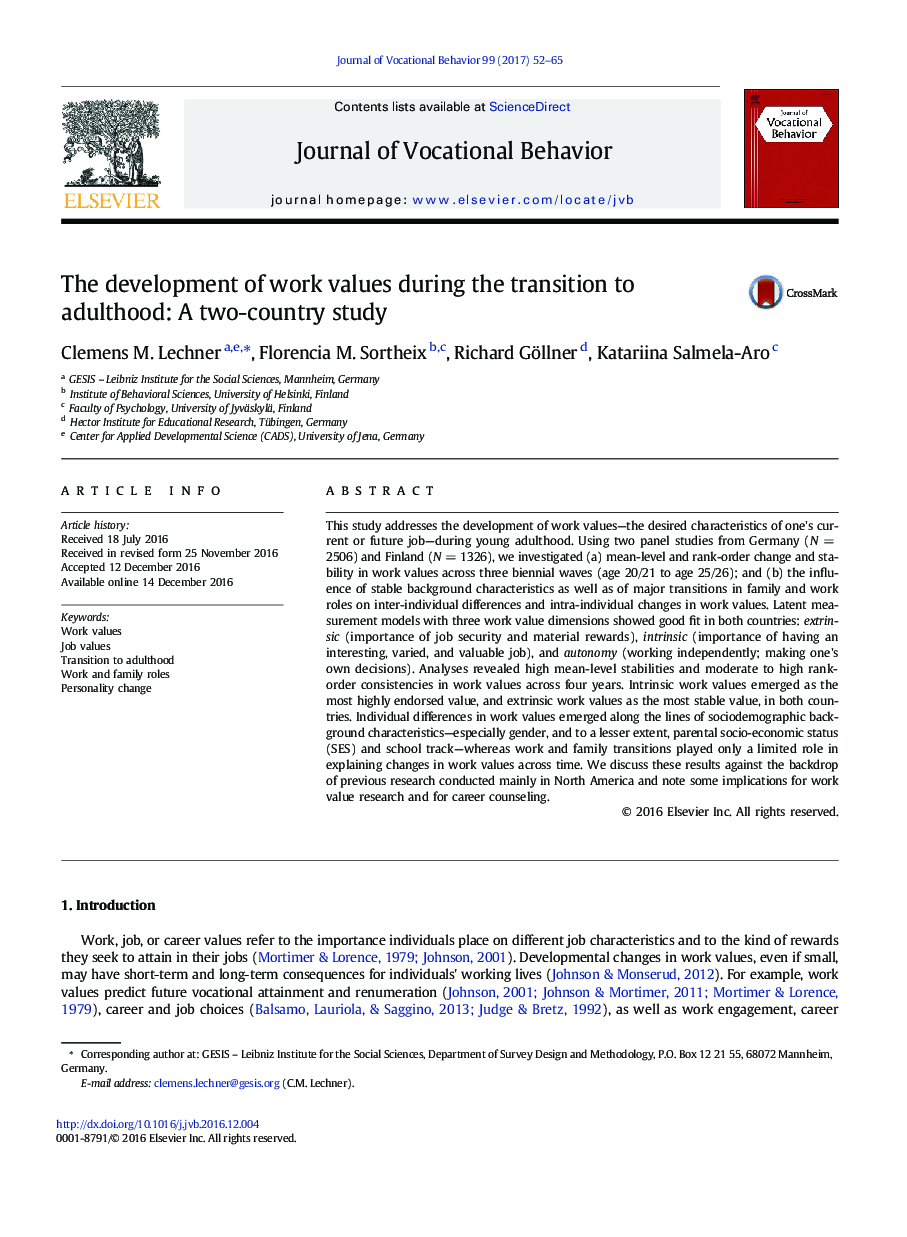| کد مقاله | کد نشریه | سال انتشار | مقاله انگلیسی | نسخه تمام متن |
|---|---|---|---|---|
| 5035152 | 1471801 | 2017 | 14 صفحه PDF | دانلود رایگان |
- We investigate the development of work values in two European large-scale samples.
- Work values show high mean-level stabilities across four years of young adulthood.
- Work values show moderate to high rank-order consistencies.
- Background characteristics (especially gender) have robust effects on work values.
- Major work and family transitions have only limited effects on work value change.
This study addresses the development of work values-the desired characteristics of one's current or future job-during young adulthood. Using two panel studies from Germany (NÂ =Â 2506) and Finland (NÂ =Â 1326), we investigated (a) mean-level and rank-order change and stability in work values across three biennial waves (age 20/21 to age 25/26); and (b) the influence of stable background characteristics as well as of major transitions in family and work roles on inter-individual differences and intra-individual changes in work values. Latent measurement models with three work value dimensions showed good fit in both countries: extrinsic (importance of job security and material rewards), intrinsic (importance of having an interesting, varied, and valuable job), and autonomy (working independently; making one's own decisions). Analyses revealed high mean-level stabilities and moderate to high rank-order consistencies in work values across four years. Intrinsic work values emerged as the most highly endorsed value, and extrinsic work values as the most stable value, in both countries. Individual differences in work values emerged along the lines of sociodemographic background characteristics-especially gender, and to a lesser extent, parental socio-economic status (SES) and school track-whereas work and family transitions played only a limited role in explaining changes in work values across time. We discuss these results against the backdrop of previous research conducted mainly in North America and note some implications for work value research and for career counseling.
Journal: Journal of Vocational Behavior - Volume 99, April 2017, Pages 52-65
